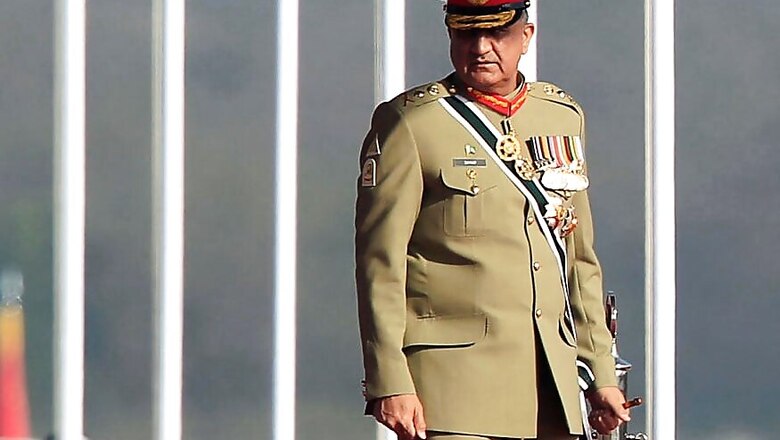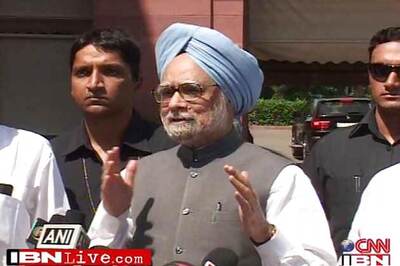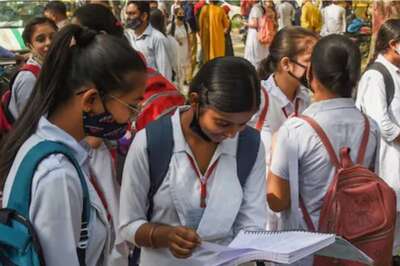
views
Karachi: Pakistan Army chief General Qamar Javed Bajwa has backed Prime Minister Imran Khan's peace initiatives, saying the new government has extended a hand of peace and friendship towards India with utmost sincerity but it should not be taken as Islamabad's weakness.
Addressing the passing out parade of Midshipmen and Short Service Course at the Naval Academy in Karachi on Saturday, Bajwa said that Pakistan was "a peace loving country and believes in peace".
Lauding the efforts of Prime Minister Khan's government to achieve peace between Pakistan and India, the army chief said peace benefits everyone and it is time to fight disease, poverty and illiteracy instead of fighting against each other.
"Our new government has extended a hand of peace and friendship towards India with utmost sincerity but it should not be taken as our weakness," Bajwa said.
The powerful army, which has ruled Pakistan for more than half of its 71 years, has always wielded considerable power in the matters of foreign policy.
The Indo-Pak ties strained after the terror attacks by Pakistan-based terrorists in 2016 and India's surgical strikes inside Pakistan-occupied Kashmir. The ties further nose-dived in 2017 with no bilateral talks talking place between them.
Amidst deadly skirmishes along the Line of Control and diplomatic bickering for better part of 2018, the consensus on both sides to open the Kartarpur corridor for Indian Sikh pilgrims has created a ray of hope for improvement in Indo-Pak ties.
"Wars bring death, destruction and misery for the people. Ultimately all issues are resolved on the table through negotiations that is why we are trying very hard to help bring a lasting peace in Afghanistan by supporting Afghan-led and Afghan-owned peace plan," Bajwa said.
He also warned that Pakistan is yet to get out from terrorism or sabotage phase of an unannounced war against it.
"Like the terrorists before; the protagonists of the new threats are at times, our own people. Mostly misguided by ambitions, blinded by hate, ethnicity or religion or simply overawed by social media onslaught, some of our own boys and girls readily fall victim to such dangerous or hostile narratives," Bajwa said.
Referring to hybrid warfare, the army chief said information and modern technology has changed the nature of warfare now being waged and has tilted the balance in favour of those nations that have embraced the change readily.
"But frankly speaking, even that will not be sufficient as the ever-increasing threat of hybrid war, to which we are subjected to, will need a totally new approach and change of traditional mindset," he said.
Advising future military leaders to prepare themselves for the threats they will face, Bajwa said that they should be able to "gauge the enemies latest moves and be ready to respond, even when a surgical strike exists only in cognitive domain or media or even when the attack comes, not in the battlefield but in cyber space, or against country's ideological frontiers."
"The response to such onslaughts or threats cannot always be kinetic in nature," he said, adding that a superior narrative needs to be propagated to deal with attacks in the cognitive domain.



















Comments
0 comment